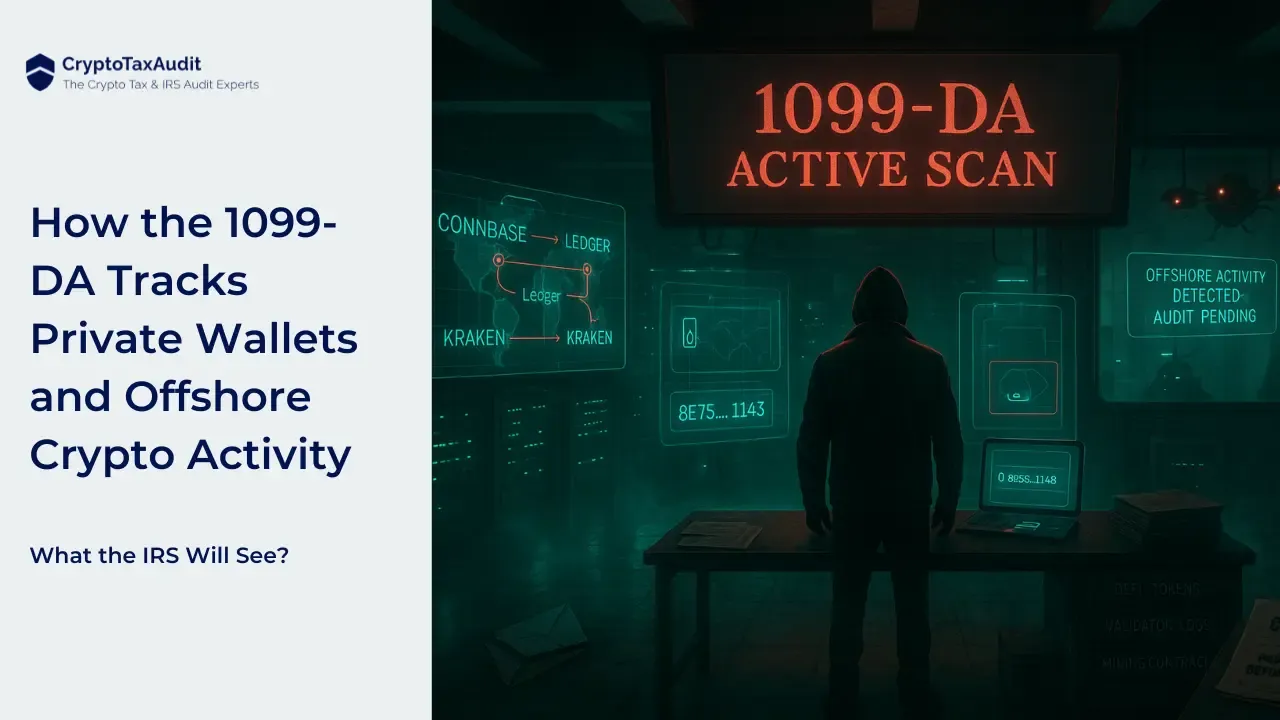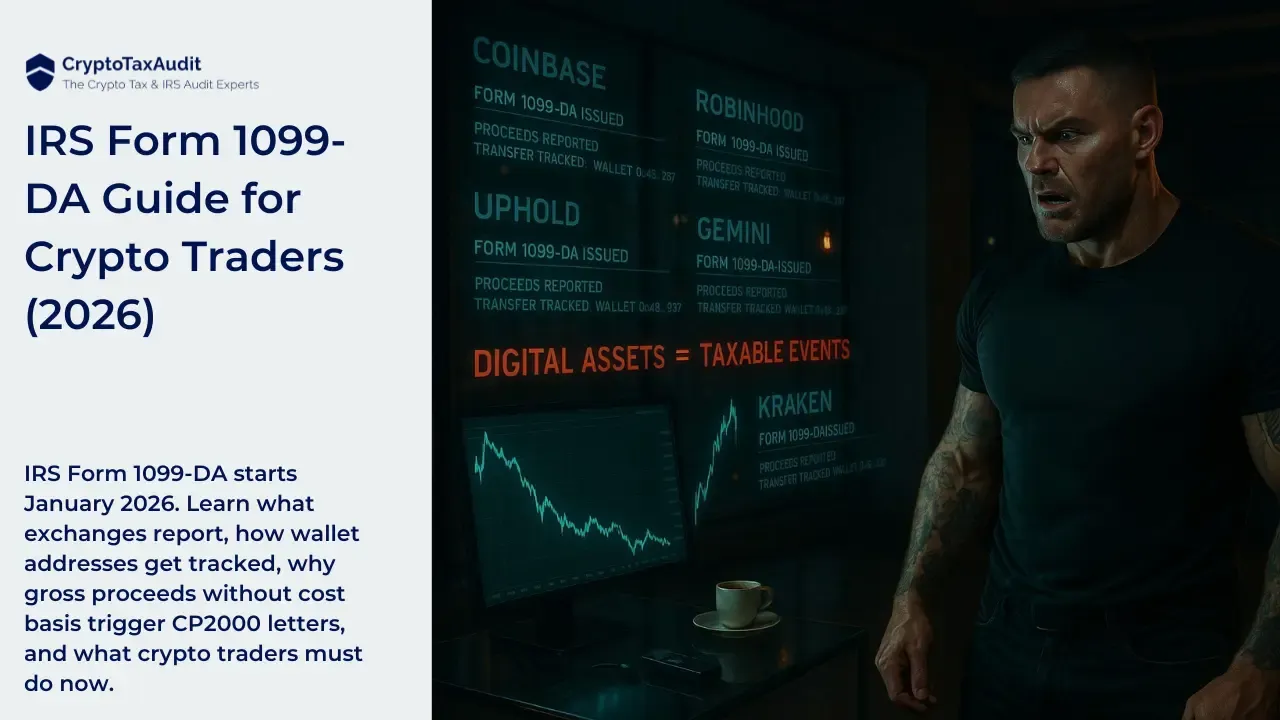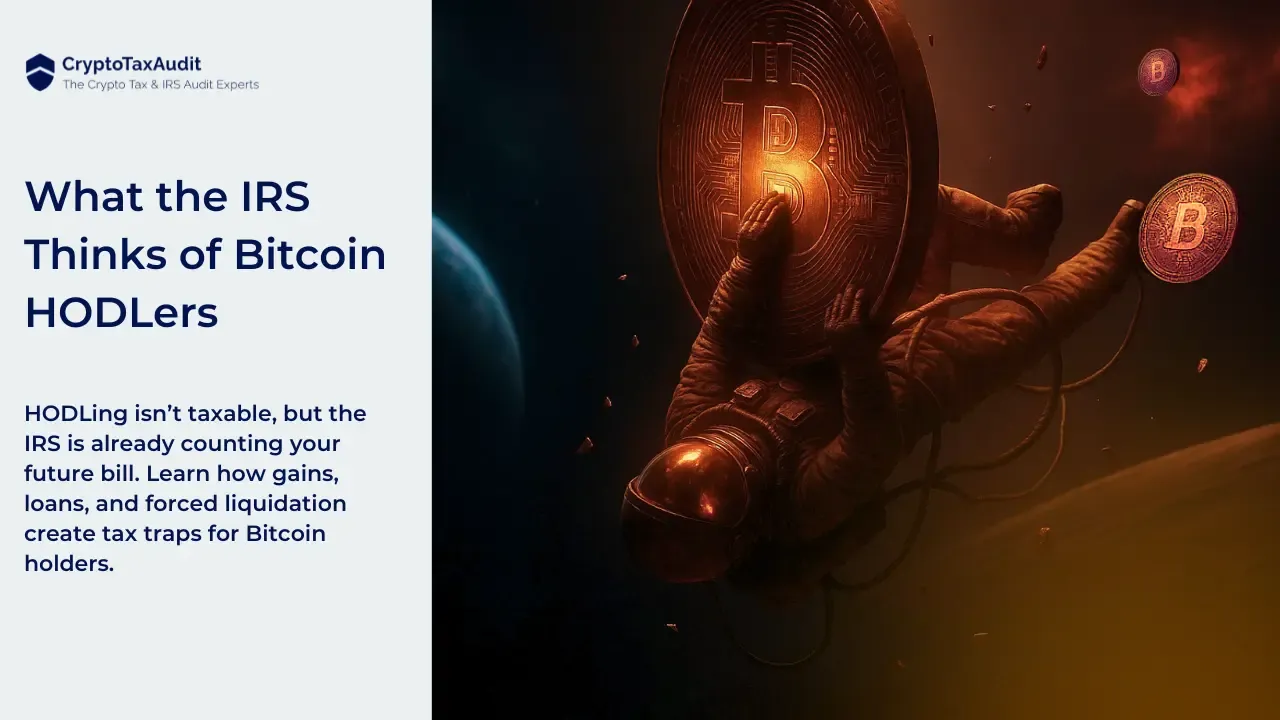
How the 1099-DA Tracks Private Wallets and Offshore Crypto Activity: What the IRS Will See!
By Clinton Donnelly, CEO, Founder | CryptoTaxAudit
Key Takeaways:
- Wallet-to-wallet transfers involving a U.S. exchange are reported your cold storage isn’t as private as you think.
- Offshore wallet activity will trigger IRS scrutiny through inbound and outbound exchange reporting.
- Miners, validators, and DeFi users aren’t off the hook, reporting obligations are evolving fast.
- Even "non-taxable" events can raise red flags and lead to audits.
Are Crypto Wallet Transfers Reported to the IRS?
Let’s say you buy $1,000 of Bitcoin on Coinbase and send it to your Ledger.
Under the 1099-DA rules, that transfer is reported. The IRS gets:
- The wallet address you sent to
- The date of transfer
- The asset and amount
No, they won’t know that’s your Ledger… at first. But once funds start moving across wallets, patterns emerge and the IRS has the tools to map them, if they choose.
This is how they begin reconstructing your entire portfolio, even if you’ve never sold a coin.
How Does the IRS Track Offshore Crypto Wallets?

Every hop gets tracked. Every step gets recorded. Even if it’s not a taxable event, the visibility is there and the IRS is watching for inconsistencies.
You’ll be the one explaining it later… or paying for it.
Will 1099-DA Forms Affect Miners, Validators, and DeFi Users?
Right now, mining rewards you generate personally aren't reported on a 1099-DA. But if you’re using a hosted mining service or staking through a provider, that service might file a 1099-DA on your behalf.
Same goes for validators especially those operating under U.S. entities or platforms.
For DeFi users: DEXs aren’t currently required to issue 1099-DAs, but the moment you bridge assets back to a centralized exchange, that activity enters the system. That’s when the IRS starts connecting the dots.
How Will Crypto Reporting Expand After the 1099-DA?
In future years, exchanges are expected to include cost basis data if they have it. But let’s be real crypto investors don’t keep everything in one place. If you’re using multiple platforms and wallets, your cost basis data will be incomplete or wrong.
That means the IRS could see high-value sales with no basis data to match and guess what happens then?
They assume your profit was 100%. And they’ll bill you as if that were true.
Should You Keep All Your Crypto on One Exchange for Tax Simplicity?
Sure, if you never move your assets and do all your trades on Coinbase, your reporting will be cleaner. The exchange will likely have your full trade history and cost basis.
But that’s not how most crypto traders operate. We move assets. We stake. We chase yield. We bridge. We diversify.
And every one of those steps makes your tax return harder to defend unless you’ve got airtight records and professional help.
Why the 1099-DA Form Changes Everything for Crypto Traders
The 1099-DA isn’t just a form. It’s a warning.
This is how the IRS builds cases, even without an audit. Transfers, wallet addresses, and sales are being funneled into a growing surveillance system. If your return doesn’t match their data even for a transaction you didn’t think was taxable you could be flagged.
How CryptoTaxAudit Helps You Prepare for 1099-DA IRS Surveillance
The freedom to move assets shouldn’t come with the risk of being misunderstood or wrongly billed.
At CryptoTaxAudit, we’ve built the only end-to-end system that protects crypto investors from IRS overreach:
- 📊 Real gain calculation based on your entire crypto footprint
- 🧾 Tax return prep that matches the IRS’s own data
- 🛡️ Defense services when the IRS challenges your numbers or your privacy
If you’re serious about protecting your holdings, now is the time.
👉 Visit CryptoTaxAudit.com and get protected before the IRS locks in its view of your portfolio
Related Articles: Why Crypto Traders NEED CryptoTaxAudit Defense Before It’s Too Late
Frequently Asked Questions About IRS Wallet Tracking and 1099-DA Reporting.
Q: Do private wallet transfers trigger reporting?
A: Yes. Centralized exchanges report outgoing transfers including wallet addresses even though they aren’t taxable events.
Q: Is offshore activity safe from the IRS?
A: No. Exchanges report both inbound and outbound wallet transfers. That’s how offshore wallets get linked to your identity.
Q: What about mining and staking rewards?
A: Personal mining isn’t reported for now, but hosted mining services and validator operations may trigger 1099-DAs, depending on their structure.
Q: Are DEX trades included in 1099-DA reporting?
A: Not directly. But once those assets hit a centralized exchange, the IRS gets visibility and will likely expect an explanation if the numbers don’t add up.
Q: How can CryptoTaxAudit help me?
A: We handle the entire process from calculating gains, to preparing accurate returns, to defending you in the event of an IRS challenge. You don’t need to guess we make sure your crypto activity is audit-proof.





